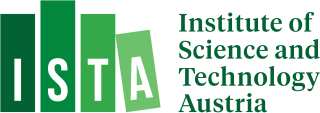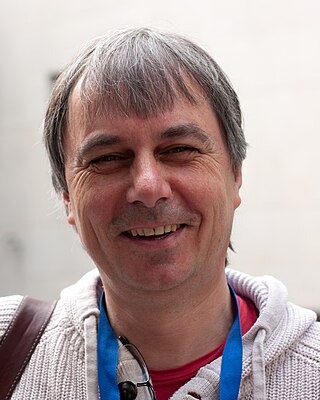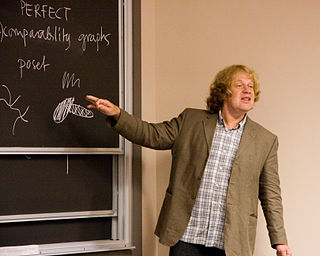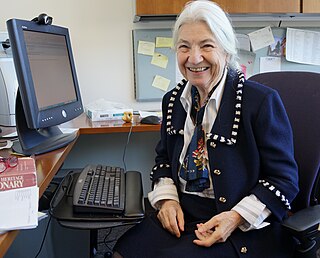
Richard Manning Karp is an American computer scientist and computational theorist at the University of California, Berkeley. He is most notable for his research in the theory of algorithms, for which he received a Turing Award in 1985, The Benjamin Franklin Medal in Computer and Cognitive Science in 2004, and the Kyoto Prize in 2008.
Scott J. Shenker is an American computer scientist, and professor of computer science at the University of California, Berkeley. He is also the leader of the Extensible Internet Group at the International Computer Science Institute in Berkeley, California.
Giovanni De Micheli is a research scientist in electronics and computer science. He is credited for the invention of the Network on a Chip design automation paradigm and for the creation of algorithms and design tools for Electronic Design Automation (EDA). He is Professor and Director of the Integrated Systems laboratory at École Polytechnique Fédérale de Lausanne (EPFL), Switzerland. Previously, he was Professor of Electrical Engineering at Stanford University. He was Director of the Electrical Engineering Institute at EPFL from 2008 to 2019 and program leader of the Swiss Federal Nano-Tera.ch program. He holds a Nuclear Engineer degree, a M.S. and a Ph.D. degree in Electrical Engineering and Computer Science under Alberto Sangiovanni-Vincentelli.

The Institute of Science and Technology Austria (ISTA) is an international research institute in natural and formal sciences, located in Maria Gugging, Klosterneuburg, 20 km northwest of the Austrian capital of Vienna. It was established and inaugurated by the provincial government of Lower Austria and the federal government of Austria in 2009.

Deborah Estrin is a Professor of Computer Science at Cornell Tech. She is co-founder of the non-profit Open mHealth and gave a TEDMED talk on small data in 2013.

S. Shankar Sastry is the founding chancellor of the Plaksha University, Mohali and a former Dean of Engineering at University of California, Berkeley.

Herbert Edelsbrunner is a computer scientist working in the field of computational geometry, the Arts & Science Professor of Computer Science and Mathematics at Duke University, Professor at the Institute of Science and Technology Austria (ISTA), and the co-founder of Geomagic, Inc. He was the first of only three computer scientists to win the National Science Foundation's Alan T. Waterman Award.

János Pach is a mathematician and computer scientist working in the fields of combinatorics and discrete and computational geometry.

Ruzena Bajcsy is an American engineer and computer scientist who specializes in robotics. She is professor of electrical engineering and computer sciences at the University of California, Berkeley, where she is also director emerita of CITRIS.
The Wittgenstein Award is an Austrian science award supporting the notion that "scientists should be guaranteed the greatest possible freedom and flexibility in the performance of their research." The prize money of up to 1.5 million euro make it the most highly endowed science award of Austria, money that is tied to research activities within the five years following the award. The Wittgenstein-Preis is named after the philosopher Ludwig Wittgenstein and is conferred once per year by the Austrian Science Fund on behalf of the Austrian Ministry for Science.

Jitendra Malik is an Indian-American academic who is the Arthur J. Chick Professor of Electrical Engineering and Computer Sciences at the University of California, Berkeley. He is known for his research in computer vision.

Monika Henzinger is a German computer scientist, and is a former director of research at Google. She is currently a professor at the Institute of Science and Technology Austria. Her expertise is mainly on algorithms with a focus on data structures, algorithmic game theory, information retrieval, search algorithms and Web data mining. She is married to Thomas Henzinger and has three children.
Helmut Veith was an Austrian computer scientist who worked on the areas of computer-aided verification, software engineering, computer security, and logic in computer science. He was a Professor of Informatics at the Vienna University of Technology, Austria.
Krishnendu Chatterjee is an Indian computer scientist who is currently a professor at the Institute of Science and Technology Austria (ISTA). He is known for his contributions to theoretical computer science, especially in algorithmic game theory, evolutionary game theory, logics and automata theory.
Tamara Ann Broderick is an American computer scientist at the Massachusetts Institute of Technology. She works on machine learning and Bayesian inference.
Trevor Jackson Darrell is an American computer scientist and professor at the University of California, Berkeley. He is known for his research on computer vision and machine learning and is one of the leading experts on topics such as deep learning and explainable AI.
Saket Saurabh is an Indian computer scientist who is currently the Professor of Theoretical Computer Science at the Institute of Mathematical Sciences, Chennai (IMSc), India and an adjunct faculty at University of Bergen, Norway. He specializes in parameterized complexity, exact algorithms, graph algorithms and game theory. His fundamental contributions to the area of parameterized complexity include procedures for obtaining algorithmic lower bounds, and meta-theorems on preprocessing. Saket Saurabh was awarded the Shanti Swarup Bhatnagar Prize for Science and Technology in Mathematical Sciences in the year 2021.
Martin Hetzer is an Austrian-born molecular biologist and President of the Institute of Science and Technology Austria (ISTA). He is holder of the Jesse and Caryl Philips Foundation Chair in Molecular Cell Biology. His research focuses on fundamental aspects of organismal aging with a special focus on the heart and central nervous system. His laboratory has also made important contributions in the area of cancer research and cell differentiation.
Emina Torlak is an American computer scientist and software engineer whose research concerns software verification, program synthesis, and the integration of these techniques into domain-specific languages. She was previously professor of computer science at the University of Washington, and is currently a senior principal scientist for Amazon Web Services.
Stefanie Sabrina Jegelka is a German computer scientist whose research in machine learning includes submodular optimization in computer vision and deep learning for graph neural networks. She is an associate professor of computer science at the Massachusetts Institute of Technology, and Alexander von Humboldt Professor at the Technical University of Munich.









